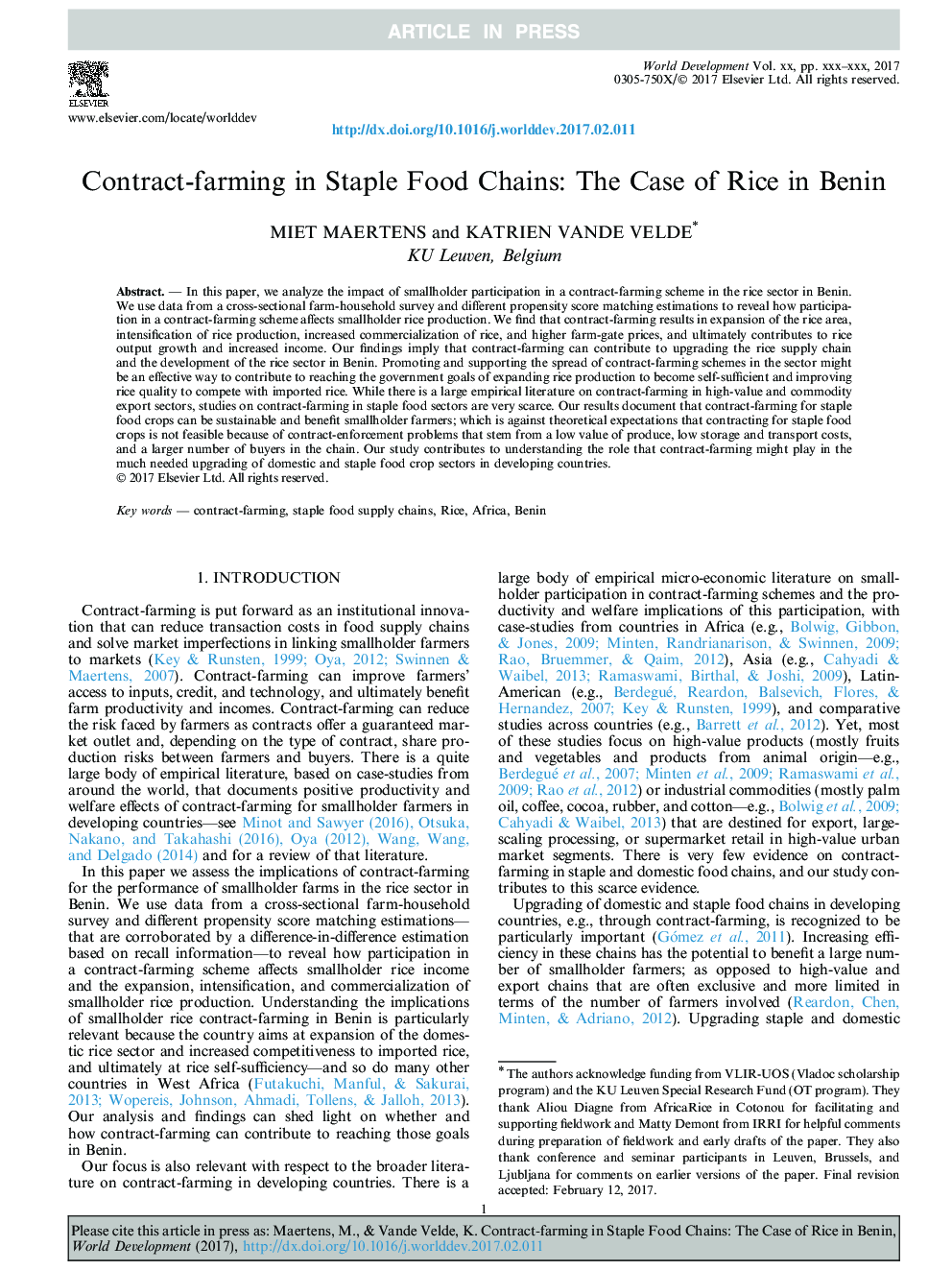| Article ID | Journal | Published Year | Pages | File Type |
|---|---|---|---|---|
| 5105269 | World Development | 2017 | 15 Pages |
Abstract
In this paper, we analyze the impact of smallholder participation in a contract-farming scheme in the rice sector in Benin. We use data from a cross-sectional farm-household survey and different propensity score matching estimations to reveal how participation in a contract-farming scheme affects smallholder rice production. We find that contract-farming results in expansion of the rice area, intensification of rice production, increased commercialization of rice, and higher farm-gate prices, and ultimately contributes to rice output growth and increased income. Our findings imply that contract-farming can contribute to upgrading the rice supply chain and the development of the rice sector in Benin. Promoting and supporting the spread of contract-farming schemes in the sector might be an effective way to contribute to reaching the government goals of expanding rice production to become self-sufficient and improving rice quality to compete with imported rice. While there is a large empirical literature on contract-farming in high-value and commodity export sectors, studies on contract-farming in staple food sectors are very scarce. Our results document that contract-farming for staple food crops can be sustainable and benefit smallholder farmers; which is against theoretical expectations that contracting for staple food crops is not feasible because of contract-enforcement problems that stem from a low value of produce, low storage and transport costs, and a larger number of buyers in the chain. Our study contributes to understanding the role that contract-farming might play in the much needed upgrading of domestic and staple food crop sectors in developing countries.
Related Topics
Social Sciences and Humanities
Economics, Econometrics and Finance
Economics and Econometrics
Authors
Miet Maertens, Katrien Vande Velde,
